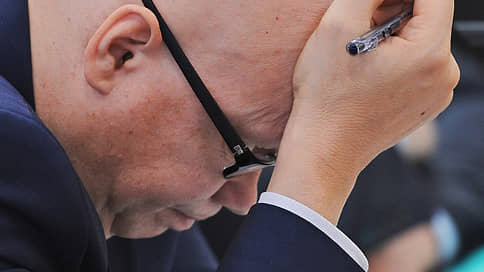Withdrawal from supporting competition – Newspaper Kommersant No. 174 (7375) of 09/21/2022
[ad_1]

The Ministry of Finance intends to revise approaches to assessing the procurement programs of state-owned companies in terms of their competitiveness. Regulatory changes and directives adopted in recent years de facto encourage state-owned companies to non-competitive purchases for the sake of import substitution and the implementation of counter-sanction measures. As a result, the Ministry of Finance invites state-owned companies to report both on competitive and non-competitive purchases, and on the ratio of “forced” purchases from a single supplier to the number of non-competitive purchases in general, which should allow the government to assess distortions of competition by the state itself. Meanwhile, new reporting requirements can provide the department with statistics on procurement invisible to the state – due to anti-sanction relief, state-owned companies can classify data about them.
As Kommersant found out, the Ministry of Finance is asking the White House to adjust the “purchase” directives to state-owned companies in accordance with the new requirements for import substitution and counter-sanctions. Deputy Finance Minister Alexei Lavrov sent a letter about this (Kommersant has it) to the government on August 30. We are talking about government directives dated February 20, 2019 No. 1519p-P13. In accordance with them, state-owned companies in programs to improve the quality of management must calculate indicators of competitive purchases and purchases from small and medium-sized businesses (SMEs) when purchasing. The directive method should increase the economic efficiency of procurement activities and increase the access of small businesses to the procurement of state-owned companies.
Now, according to the agency, these indicators are not enough – the directives do not take into account changes in regulation: the adjustment of the definition of non-competitive purchases, the introduced quotas for the purchase of domestic products and other protectionist measures. In addition, counter-sanction mechanisms to reduce the risks of “secondary sanctions” are not taken into account – the ability of the state JSC to classify data on its purchases and not publish them in the Unified Information System in the field of public procurement (UIS). Mr. Lavrov reminds in the letter that in order to meet the requirements of the government, customers carry out non-competitive purchases – as a result, some customers are purchased only within the framework of non-competitive procedures.
The Federal Property Management Agency previously noted the preference for a regulatory approach in the management of state-owned companies. Meanwhile, directives were supposed to become a mechanism for manual control in the absence of systemic regulation. So, for example, the directives were required to stimulate and force state-owned companies to import substitution – to meet the requirements for reporting on the fulfillment of quotas and the ability to purchase from a single supplier (see Kommersant dated March 25, 2021).
The Ministry of Finance proposes to take into account the innovations and in the new directives to abandon the assessment of efficiency solely on the basis of the state of competition – it is de facto irrelevant in an environment where the state itself encourages the state JSC to non-competitive purchases. State-owned companies are invited to report on the share of purchases from a single supplier in relation to the total volume of purchases and, separately, non-competitive purchases. It should be noted that the new approach may contribute to the appearance of missing data on the procurement activities of state-owned companies by the Ministry of Finance: after the spring relaxations and the possibility for the state JSC to not publish data on its purchases in the EIS in order to avoid the risks of secondary sanctions, because of this, the state lost data on half of the procurement of state-owned companies (see Kommersant dated August 3).
The Ministry of Finance denies the connection between the clarification of the directive and the closure of information on the purchases of the state JSC. Earlier, the ministry promised from April 2023 to return all dropped purchases to the closed EIS circuit. How the breakdown of indicators into competitive and non-competitive purchases with the separation of purchases from a single supplier can help increase the efficiency or transparency of the implementation of procurement programs and state requirements, the Ministry of Finance did not explain.
Diana Galieva
[ad_2]
Source link






